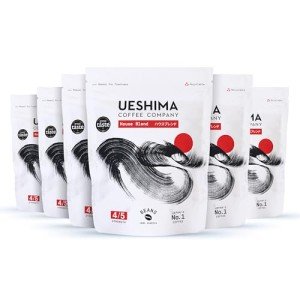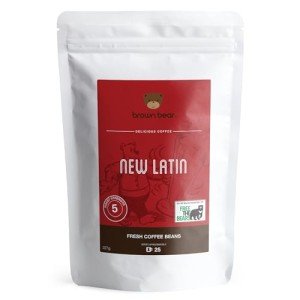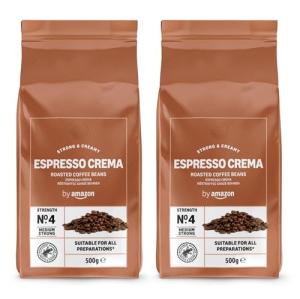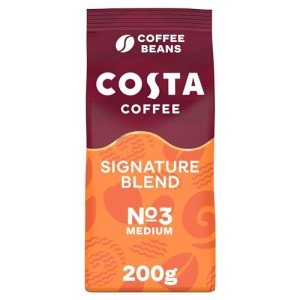Coffee lovers from around the globe have a unique connection with their daily brew, and the demand for ethically sourced, high-quality beans continues to rise. One of the most sought-after varieties is the South American Blend fairtrade coffee beans. This guide delves into what makes these beans special, their origins, benefits, and how they contribute to a more sustainable coffee industry.
Origins of South American Blend Fairtrade Coffee Beans
South America is home to some of the most renowned coffee-producing countries in the world, including Brazil, Colombia, Peru, and Ecuador. The diverse climates, altitudes, and soil compositions across these regions create a wide range of flavors and profiles that coffee enthusiasts cherish.
Key Coffee-Producing Countries:
- Brazil: Known for its nutty and chocolatey flavors, Brazilian coffee often serves as the backbone for many espresso blends.
- Colombia: Colombian coffee is famous for its well-balanced flavor, often described as smooth and fruity with a hint of acidity.
- Peru: Coffee from Peru usually boasts a mild flavor with a light body, making it very approachable for coffee beginners.
- Ecuador: Ecuadorian beans offer unique flavor profiles, ranging from floral to fruity, enhanced by the country's varied climate and altitudes.
These countries not only contribute rich flavors to the coffee industry but are also pivotal in shaping a sustainable future for coffee farming through fairtrade practices.
The Significance of Fairtrade Certification
The fairtrade certification plays a pivotal role in ensuring that farmers receive a fair price for their coffee. This system is designed to promote ethical trading practices and foster environmental sustainability. The fairtrade label guarantees that coffee is produced under specific social, economic, and environmental standards.
Benefits of Fairtrade Coffee:
- Fair wages: Farmers receive a minimum price that covers the cost of production, which helps eliminate poverty within coffee-growing communities.
- Empowerment: Fairtrade organizations support local cooperatives, providing farmers with training and resources to enhance their production techniques.
- Sustainability: Fairtrade encourages environmentally-friendly farming practices, promoting biodiversity and responsible land use.
- Community development: Premiums paid for fairtrade coffee can fund social initiatives, such as education, healthcare, and infrastructure improvements within farming communities.
Characteristics of South American Blend Fairtrade Coffee Beans
South American Blend fairtrade coffee beans are known for their excellent balance of flavor, acidity, and body. Here are some common characteristics that coffee aficionados can expect:
Flavor Profile:
- Bright Acidity: South American beans typically feature a refreshing acidity that adds complexity to the cup.
- Nutty Notes: Often found in Brazilian coffee, nutty and chocolatey flavors can be predominant in the blend.
- Fruity Undertones: Some varieties may exhibit fruity notes, adding an invigorating element to the brewing experience.
- Smooth Finish: The overall mouthfeel is generally smooth, making these beans suitable for various brewing methods.
Brewing Methods:
For optimal flavor extraction, various brewing methods can be employed depending on personal preferences. Common methods include:
- Drip Coffee Maker: Simple and efficient for households.
- French Press: Offers full-body extraction, enhancing the coffee's natural oils.
- Espresso Machine: Ideal for those desiring a concentrated coffee shot with robust flavors.
- Pour-Over: Provides a clean, crisp taste and allows for precise control over brewing time and water temperature.
The Ethical Choice: Why Opt for Fairtrade Coffee?
In an age of increasing consumer awareness, choosing fairtrade coffee has far-reaching benefits. By purchasing South American Blend fairtrade coffee beans, consumers can ensure their choices have a positive impact.
Reasons to Choose Fairtrade Coffee:
- Support Small Farmers: By buying fairtrade products, consumers help sustain family-owned farms and local economies.
- Promote Sustainability: Fairtrade practices contribute to environmental protection and climate resilience.
- Quality Assurance: Fairtrade coffees often go through stringent quality checks, ensuring that consumers receive a premium product.
Frequently Asked Questions (FAQs)
What is Fairtrade coffee?
Fairtrade coffee refers to coffee sourced from farmers who meet specific sustainability and ethical standards set by fairtrade organizations. This certification ensures that farmers receive fair wages and that environmentally responsible farming practices are upheld.
How can I identify fairtrade coffee?
Look for the fairtrade logo on coffee packaging. This logo signifies that the product meets fairtrade standards.
What are the main flavors of South American Blend fairtrade coffee?
Typically, South American Blend fairtrade coffee features bright acidity, nutty and chocolatey notes, fruity undertones, and a smooth finish.
How should I brew South American Blend fairtrade coffee?
You can use various brewing methods, including drip coffee makers, French presses, espresso machines, and pour-over techniques, depending on your taste preferences.
Is fairtrade coffee more expensive?
Fairtrade coffee may be priced higher than conventional coffee due to the fair wages and sustainable practices involved in its production. However, many consumers believe that the quality and ethical considerations are well worth the price.
South American Blend fairtrade coffee beans represent more than just a morning pick-me-up; they symbolize a commitment to ethical sourcing and sustainable practices. By choosing these beans, consumers not only enjoy a delicious cup of coffee but also contribute to the support of marginalized farmers and the preservation of the environment. As the coffee landscape continues to evolve, the importance of fairtrade practices will remain critical in ensuring a bright future for both coffee lovers and producers alike.






